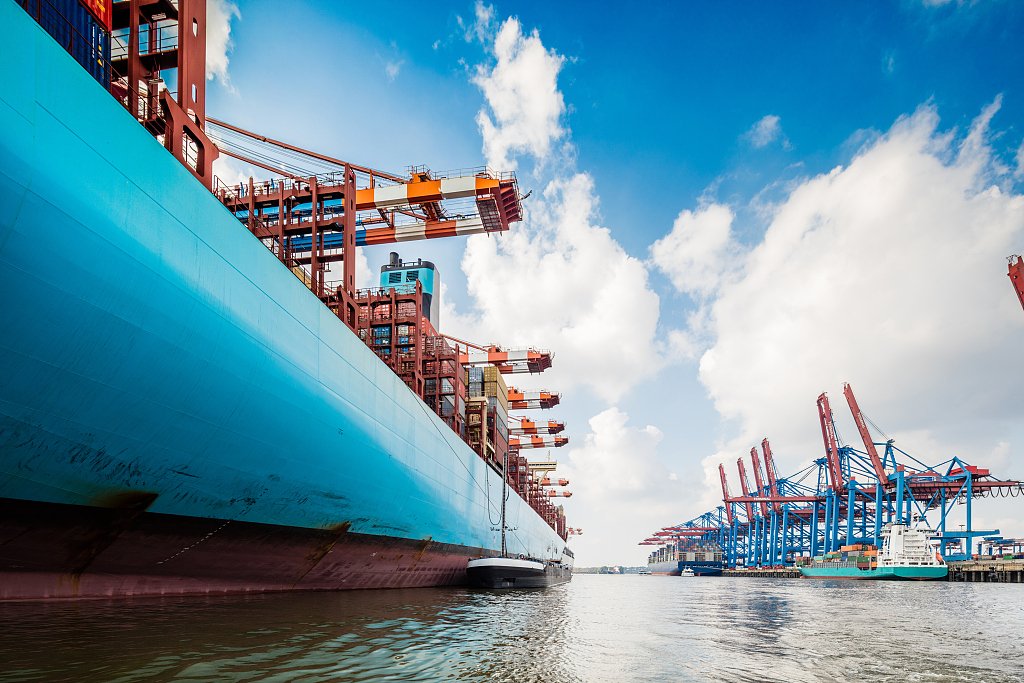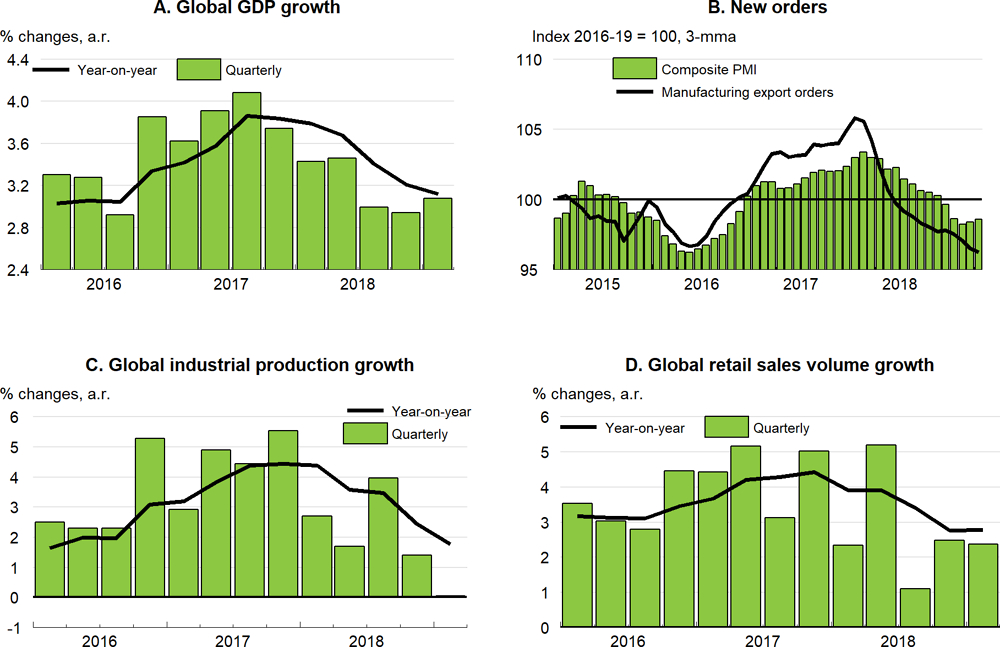
Economy
14:57, 22-May-2019
OECD: Trade frictions to drag down global growth
CGTN

The Organization for Economic Cooperation and Development (OECD) said Tuesday that trade tensions are taking a toll on global growth.
Economic growth in China and the United States could be 0.2-0.3 percent lower on average by 2021 and 2022, after being affected by tariffs and trade tensions, the OECD said in its biannual Economic Outlook.
The OECD said that trade tensions are not only hurting the short-term outlook but also medium-term prospects, calling for urgent government action to reinvigorate growth.
In its report, the OECD said trade disputes should be resolved "through increased international cooperation while fixing the international rules-based system.“

Trade and investment have moderated sharply, the OECD warned Tuesday. /VCG Photo
Trade and investment have moderated sharply, the OECD warned Tuesday. /VCG Photo
New tariffs and retaliatory counter-measures introduced last year are having a negative effect on output and revenue.
Declines in trade flows and increases in prices in some sectors, particularly in the United States and China, have already been seen, the OECD warned.
Risks remain that further measures may be implemented this year, including new restrictions in specific trade-sensitive sectors such as cars and car parts, said the report.
Global growth to remain weak
Global growth is projected to slow to only 3.2 percent this year, before edging up to 3.4 percent in 2020, said the report.

Global growth has slowed. /OECD graphics
Global growth has slowed. /OECD graphics
The report listed key risks hindering global economic growth, including a prolonged period of higher tariffs on trade between the United States and China, new trade barriers, particularly additional tariffs on trade between the United States and the European Union, and lingering uncertainty about Brexit.
The OECD outlook also mentioned that the services sector, which is less subject to trade jitters and creates more jobs, will continue to hold up.
However, wages are projected to grow by less than 1.5 percent from this year to the next, below the two-percent average pace in the decade prior to the 2008 crisis. It means that standards of living have improved too slowly to significantly reduce inequality.

SITEMAP
Copyright © 2018 CGTN. Beijing ICP prepared NO.16065310-3
Copyright © 2018 CGTN. Beijing ICP prepared NO.16065310-3